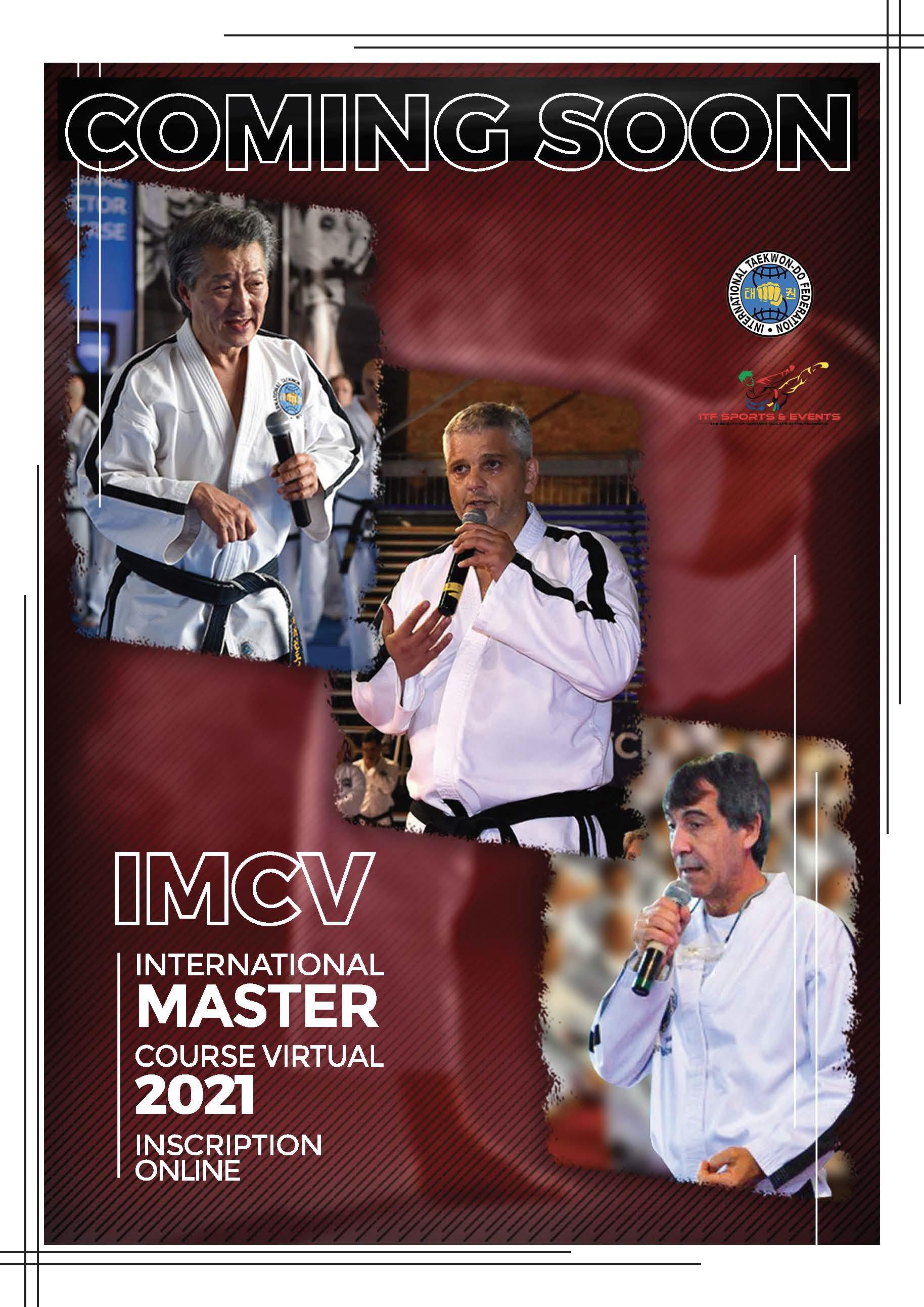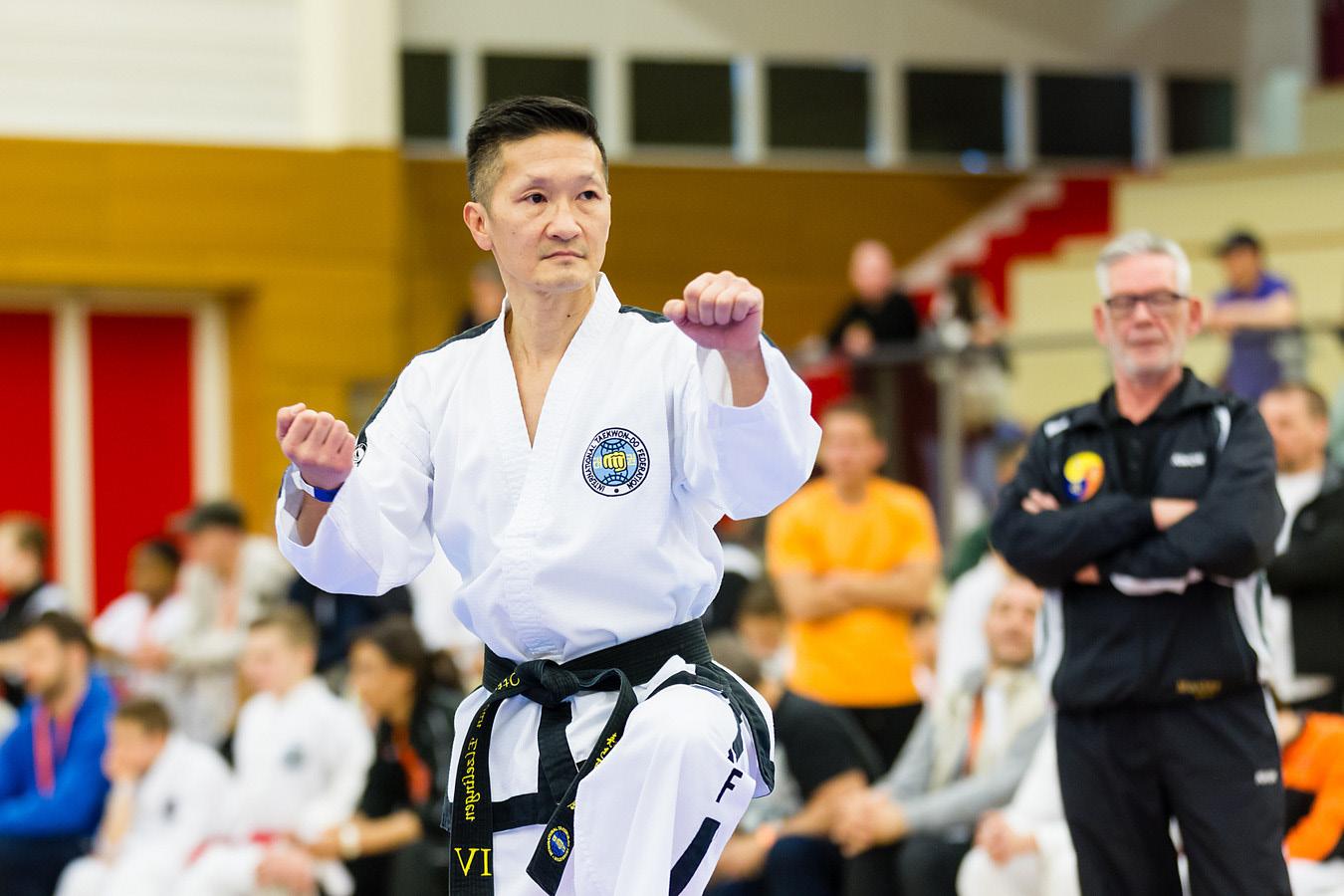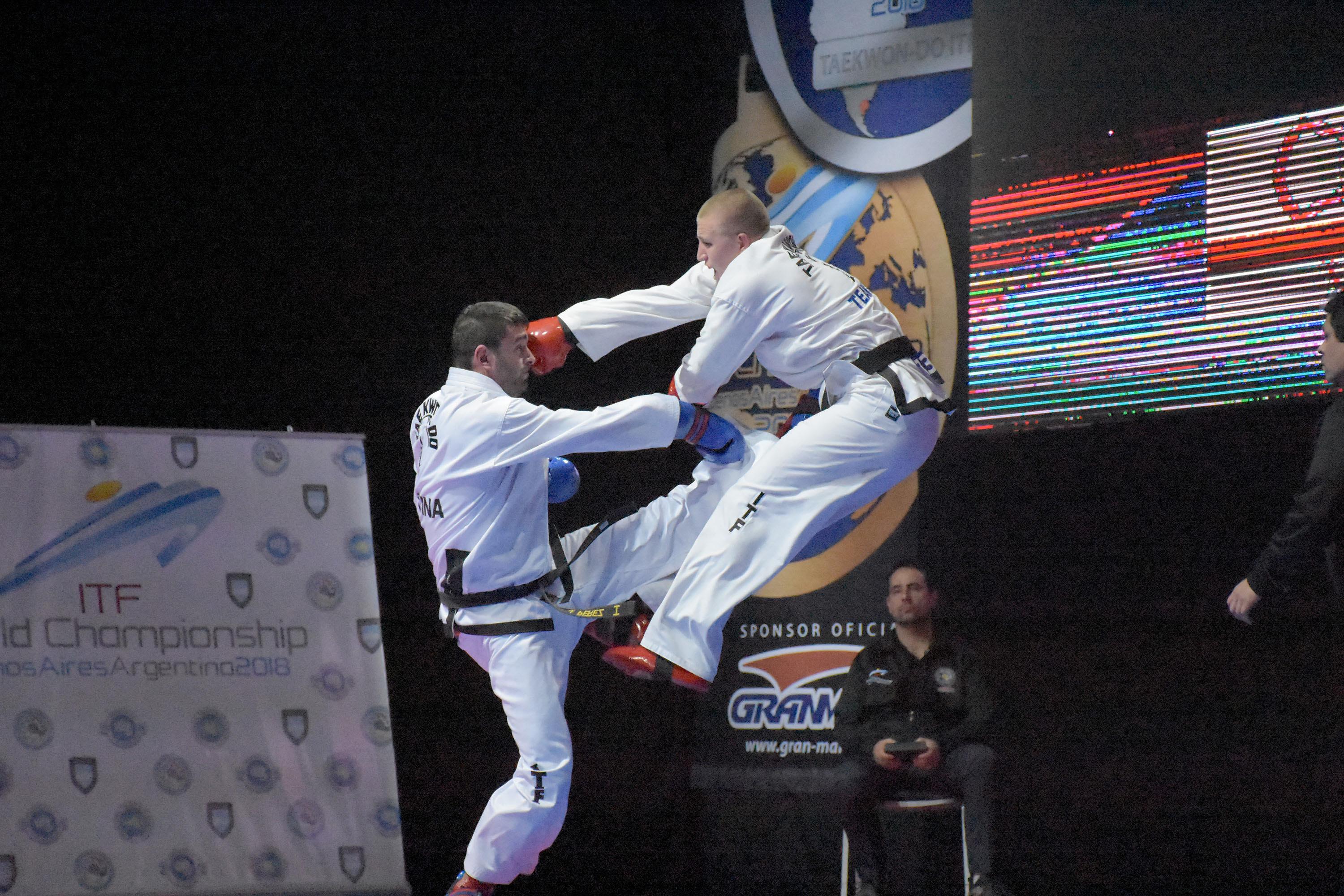
6 minute read
Master Edimir Kawakubo - Brasil
Virtual classes gave us a new system to communicate, teach.
Advertisement
Edimir Kawakubo VII DAN - Presidente de ITF Brasil - ITF Medalla de Honor 2018.
Amante de las artes marciales. Nació en Brasil, sus padres son japoneses. Edimir Kawakubo fundador de la ITF Brasil nos cuenta de sus orígenes y de su Federación.
¿Cuándo empezó a dar clases?
Empecé a dar clases en 1987. Ya en el año 1998 llego a IV DAN y creo una Asociación llamada ITF Río, en la cual estuve hasta 2003 y ahí es cuando también creó la ITF Brasil que ya rige a nivel Nacional, no sólo en Río de Janeiro.
¿Cómo se fue desarrollando el Taekwon-Do en Brasil a partir de ese 2003?
En Brasil ya a partir de 1991 había movimiento en el mundo del Taekwon-Do, más que nada en San Pablo. Estábamos en 5 Estados: Río de Janeiro, San Pablo, Paraná, Santa Catarina, Bahía y Ceará. A partir del 2003 sumamos 2 Estados más y alcanzamos 7. Y vamos por más.
¿Qué proyección tienen para el futuro?
La pandemia nos frenó un poco el progreso que veníamos teniendo. Teníamos algunos Estados que nos estaban contactando para conocer el Taekwon-Do. Tenemos un criterio a seguir en las escuelas que se van sumando, no cualquiera se puede sumar. Tomamos la decisión de hablar después de la pandemia para que nos podamos conocer mejor. Para este año tenemos para el mes de agosto un examen grande de Danes de categorías mayores. Igualmente lo estaremos confirmando en marzo/abril, dependiendo de cómo va a estar la situación del país. La ventaja que tenemos es la estabilidad que nos da estar en 7 estados.

Martial arts lover, He was born in Brazil, his parents are Japanese. Edimir Kawakubo, founder of the ITF Brazil, tells us about the origins of him and his Federation.
When did he start teaching?
I started teaching in 1987. Already in 1998 I came to IV DAN and created an Association called ITF Río, in which I was until 2003 and that is when I also created the ITF Brazil that already governs at the National level, not only in Rio of Janeiro.
How did Taekwon-Do develop in Brazil since 2003?
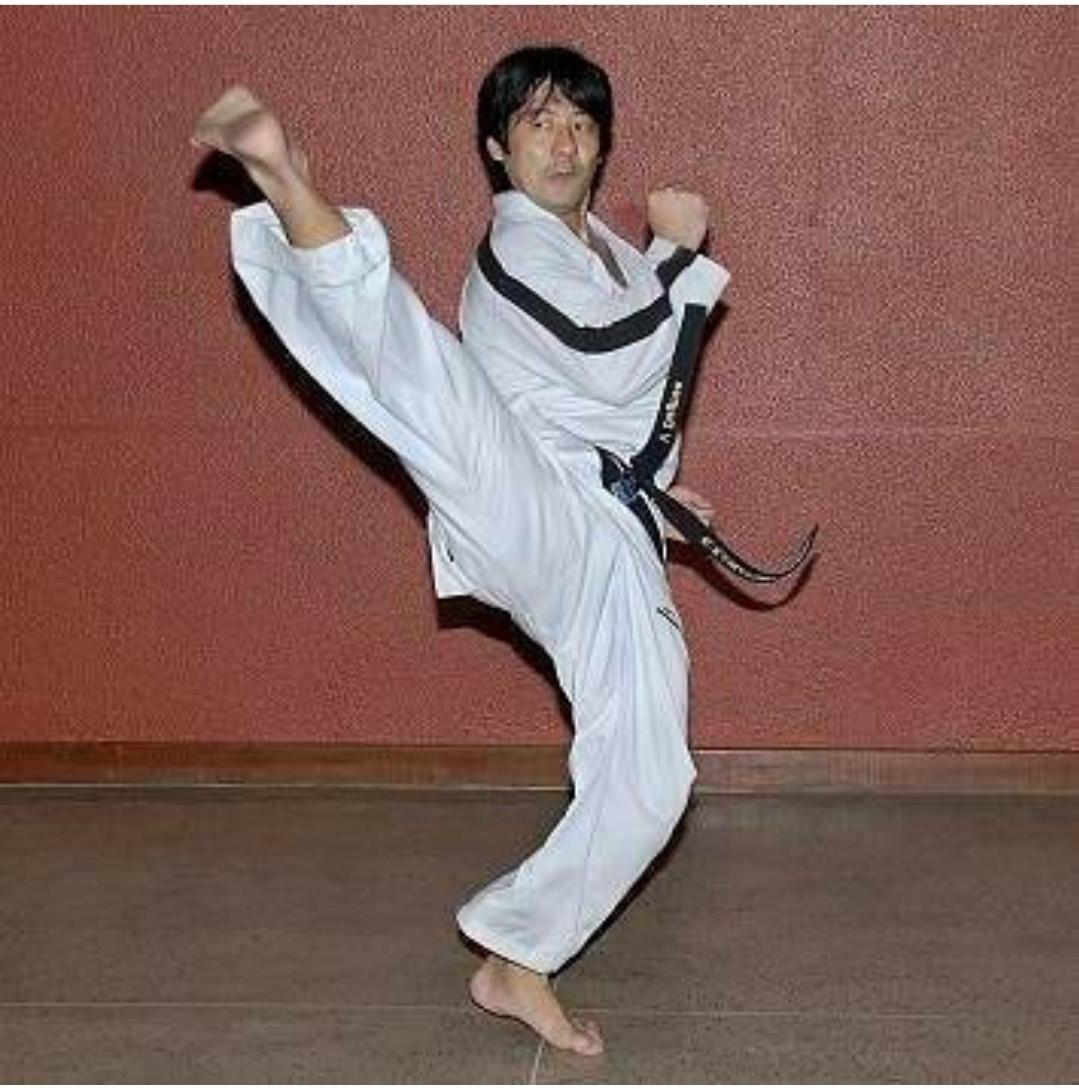
In Brazil, since 1991 there has been a movement in the world of Taekwon-Do, more than anything in São Paulo. We were in 5 states: Rio de Janeiro, São Paulo, Paraná, Santa Catarina, Bahia and Ceará. Starting in 2003, we added 2 more states and reached 7. And we're going for more.

What projection do they have for the future?
The pandemic slowed down the progress we had been making a bit. We had some states that were contacting us to learn about Taekwon-Do. We have a criterion to follow in the schools that are adding, not just anyone can join. We made the decision to speak up after the pandemic so that we can get to know each other better. For next year we have for the month of August a big Danish exam of major categories. We will also be confirming it in March / April, depending on how the situation in the country is going to be. The advantage we have is the stability that being in 7 states gives us.
¿Qué parámetros tienen para seleccionar a los Estados que se van incluyendo?
Primero nos fijamos el motivo por el cual se acercan. Una cosa es venir porque hay un interés y otra muy distinta es venir porque los han echado de otra Federación. Segundo, nos fijamos en la historia de la escuela, vamos, miramos y sacamos conclusiones. Pedimos un cambio de uniforme (al de nuestra Federación, el que cambia el uniforme es porque realmente quiere cambiarse). Luego hacemos una prueba de seis meses, para ver si se adapta o no.
¿Cómo hace la federación para elegir los competidores para un campeonato?
En Brasil nosotros hacemos selectivos para los individuales y para otros no. En cuanto a los grupales elegimos entre los mayores quienes están aptos para estar en cuanto a los resultados que tenemos.
¿Brasil tiene taekwondo adaptado?
Nosotros no tenemos un sector exclusivo para eso. Pero sí tenemos, competidores que incluso participaron del sudamericano. Nos falta desarrollar ese sector para los competidores.
¿Cómo venía avanzando la enseñanza con los más chicos?
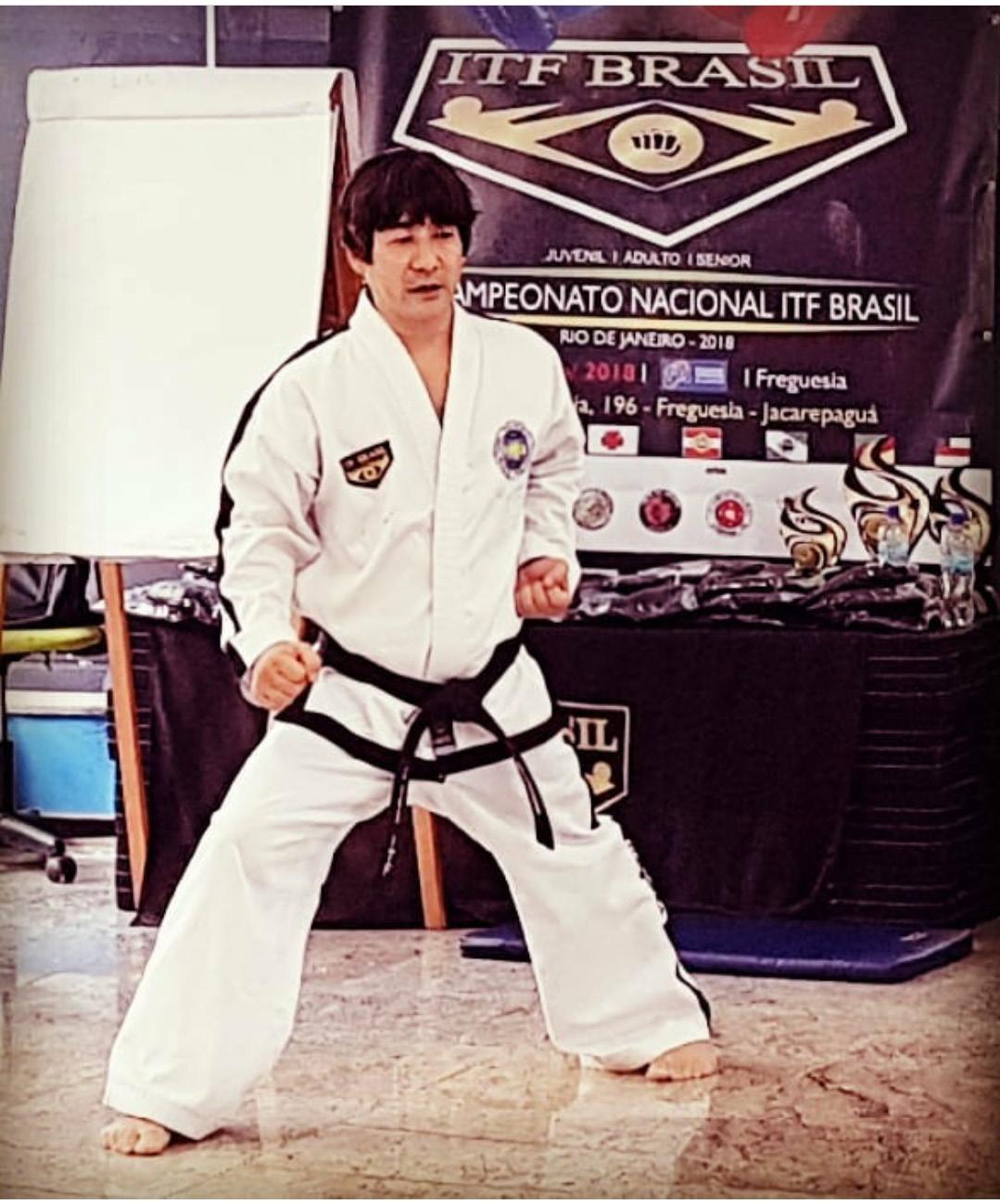
En principio los padres estaban muy preocupados por los chicos así que no los estaban llevando Por miedo al contagio del COViD – 19. Eran escuelas que tenían 50 chicos y ahora tienen 30 ó 20. Estamos ahora en un sesenta por ciento de los alumnos que teníamos antes. Esperamos para este 2021 que se regularice la situación.

¿Hay seminarios de regulación de técnicas, cursos?
Sí, siempre hacemos dos por año. Uno solamente para los cinturones negros y uno para todos. Generalmente son de dos días. Este año lo hicimos de manera virtual, aunque no fue lo mismo, nos sirvió. Pese a estar en contra de las clases virtuales, pienso que las artes marciales deben tener contacto, sé que nos ayudaron y mucho en este tiempo. Se encontró un sistema nuevo de clase, de comunicación. La pandemia se va a ir, pero este sistema se va a quedar, se va a sumar.
What parameters do they have to select the States to be included?
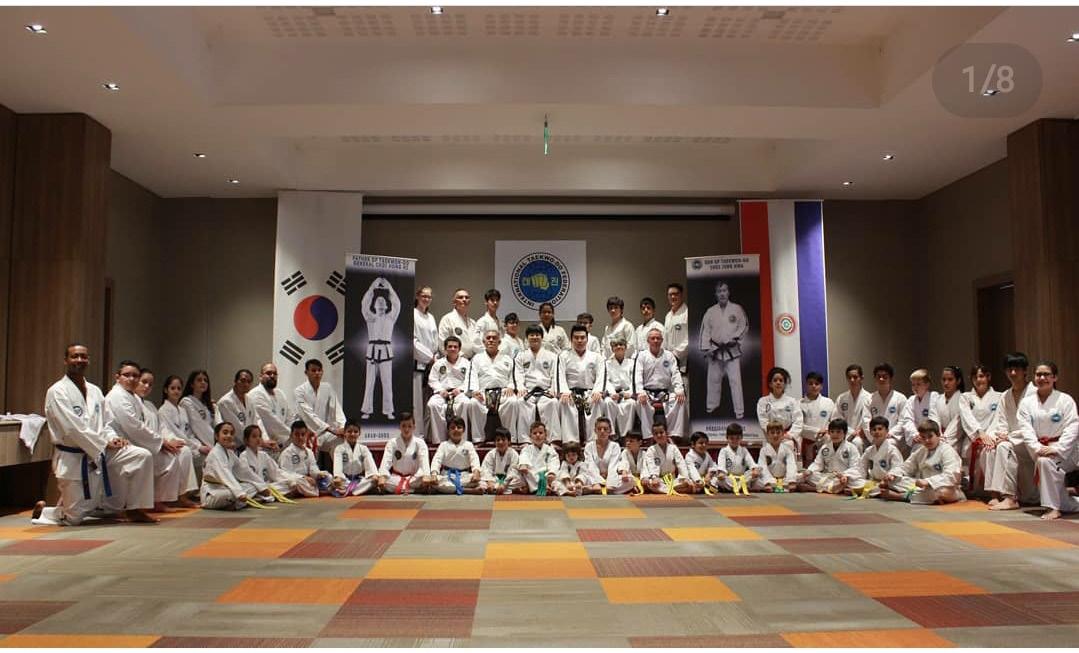
First we look at the reason why they approach. It is one thing to come because there is an interest and it is quite another to come because they have been fired from another Federation. Second, we look at the history of the school, we go, we look and we draw conclusions. We ask for a change of uniform (to our Federation, whoever changes the uniform is because he really wants to change). Then we do a six-month test, to see if it fits or not.

How does the federation choose the competitors for a championship?
In Brazil we are selective for individuals and not for others. As for the groups, we choose among the older ones who are suitable to be in terms of the results we have.
Does Brazil have adapted taekwondo?
We do not have an exclusive sector for that. But we do have competitors who even participated in the South American. We need to develop that sector for competitors.
How was teaching progressing with the younger ones?
In principle the parents were very concerned about the children so they were not taking them For fear of contagion of COViD - 19. They were schools that had 50 children and now they have 30 or 20. We are now at sixty percent of the students we had before. We hope for this 2021 that the situation is regularized.
Are there technical regulation seminars, courses?
Yes, we always do two a year. One only for the black belts and one for all. They are generally two days. This year we did them virtually, although it was not the same, it served us well. Despite being against virtual classes, because I think that martial arts should have contact, I know that they helped us a lot in this time. A new system of class of communication was found. The pandemic is going to go away, but this system is going to stay, it is going to add up.
